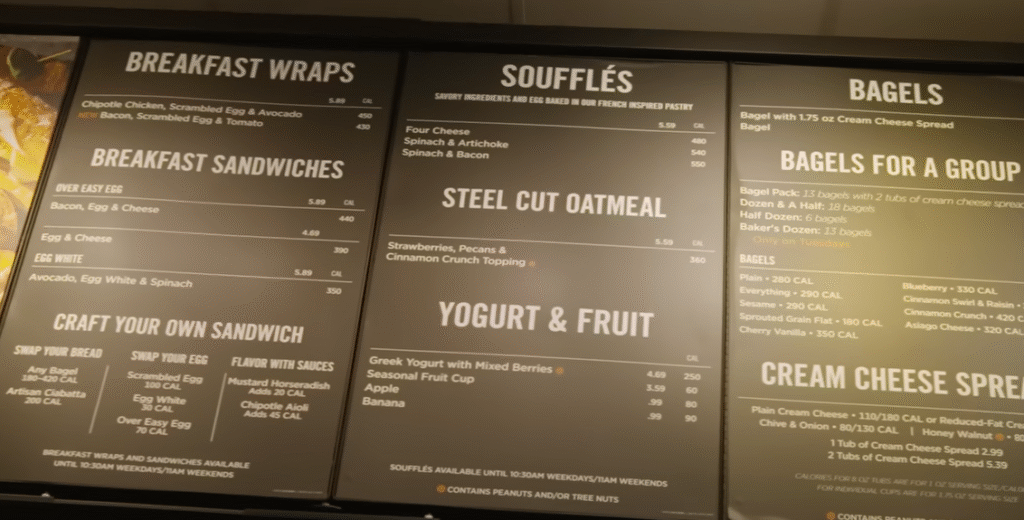Customers, workers, and families are coming forward to demand accountability from a company that was once associated with comfort food and casual café culture, and the Panera class action lawsuit has become a landmark case in contemporary consumer activism. This is about trust, openness, and the changing balance of power between businesses and the people they serve; it’s not just about sandwiches or soups.
Panera acknowledged paying $2.5 million to settle a significant data breach in March 2024. Nearly 150,000 people are worrying about identity theft as a result of the compromise of sensitive data, including employee records and Social Security numbers. The harm felt especially personal to the employees, many of whom were unaware of the breach until weeks later. Unaware that the very card used to pay for lunch was vulnerable to exploitation, some likened the incident to waiting in line at a Panera café. Panera offered payments of up to $6,500 for significant fraud losses and $500 for regular expenses, despite its denial of any wrongdoing.
Just a few weeks prior, in February 2024, the business reached a $2 million settlement to resolve complaints about unstated delivery fees. Customers found that when they ordered the same sandwich through the Panera app for delivery, the price, which was $9 in-store, mysteriously increased to almost $10. Despite advertising low or even free delivery fees, the lawsuit contended that these hidden markups were intended to cover delivery costs. Amazingly adaptable in its defense, Panera maintained that the practice was lawful but chose to settle rather than face protracted legal action. Eligible customers had the option of receiving small cash reimbursements or soup and mac vouchers, but many thought the remedy was remarkably similar to a marketing campaign masquerading as compensation.
Panera Class Action Lawsuit Key Details
| Category | Information |
|---|---|
| Company | Panera Bread |
| Lawsuit Types | Data Breach Settlement, Delivery Fee Misrepresentation, Wrongful Death (Charged Lemonade) |
| Settlement Amounts | $2.5 million (Data Breach, March 2024), $2 million (Delivery Fees, Feb 2024), Confidential (Charged Lemonade, late 2024) |
| Claim Deadline | November 11, 2025 (Data Breach settlement) |
| Eligibility | Employees, customers, and contractors affected by breach; customers who ordered delivery (2020–2021); family of wrongful death victim |
| Compensation | Up to $6,500 for extraordinary identity theft losses; up to $500 for documented out-of-pocket expenses; vouchers or cash for delivery claims |
| Impact | Loss of consumer trust, withdrawal of Charged Lemonade, heightened scrutiny on fast-casual industry practices |
| Reference | Top Class Actions Report |

The story took a tragic turn later in 2024. A college student’s sudden death was linked to Panera’s highly caffeinated Charged Lemonade, a beverage promoted as energizing but carrying caffeine levels significantly higher than many energy drinks. Her family filed a lawsuit, claiming Panera had not given sufficiently obvious warnings. Although the beverage has since been phased out, the private agreement generated discussions that went well beyond coffee shops. Doctors, nutritionists, and even fitness celebrities started highlighting the risks of consuming too much caffeine under false pretenses. The case highlighted the striking gap between corporate branding and consumer safety.
When taken as a whole, these lawsuits create a story that remarkably captures the concerns of contemporary consumers. People are reminded of Equifax and Target by data security breaches; Uber Eats and airline scandals are strikingly similar to hidden fees; and the wrongful death case is reminiscent of tragic events where openness could have prevented fatalities. Once a reliable haven for fast food and remote workers using laptops, Panera abruptly turned into a representation of more significant structural problems in the restaurant and retail industries.
The consequences go far beyond Panera. McDonald’s has had to deal with lawsuits over its advertising, Chipotle has had food safety issues, and Starbucks has had its share of wage disputes. Every example, including Panera’s, demonstrates how customers are becoming more vocal about their displeasure. They are changing the fundamental basis of consumer rights by using class actions, establishing a movement that is incredibly resilient and effective at forcing businesses to change.
For many, the Panera settlements may seem financially modest in relation to the company’s billions in revenue. However, the harm to one’s reputation is much more severe. A devoted Panera customer invests trust in addition to purchasing bread bowls. Rebuilding that trust after it has been damaged calls for more than just payments. It calls for a change in corporate culture toward transparency, which is especially advantageous in a time when even small mistakes are widely publicized on social media.
Influencers in culture have noticed. Conversations went viral after Chrissy Teigen expressed her annoyance on Twitter about hidden delivery fees in dining apps. Cybersecurity analysts likened Panera’s breach to Target’s notorious hack, drawing public attention to how vulnerable personal data remains. Such criticism not only draws attention to Panera’s errors, but it also accentuates the trend of consumers expecting businesses to act responsibly in all spheres—digital, financial, and health-related.
These lawsuits demonstrate how systemic change can be fueled by collective action from a societal standpoint. Once thought of as legal footnotes, class actions are now surprisingly inexpensive means for individuals to take on powerful corporations. Attorneys claim that in addition to settling conflicts, these cases are encouraging companies to adopt noticeably better procedures. Although specifics are still unknown, Panera has promised to improve its cybersecurity and get rid of deceptive pricing schemes. Whether these promises will be remarkably evident in practice is the question.
The Panera case is a warning sign for the fast-casual dining industry. Customers no longer put up with ambiguous regulations or dangerous goods passed off as innovative. It is remarkable that they are getting the accountability they demand. The lawsuits show that people can force billion-dollar brands to change their ways when they band together, whether it’s over a delivery fee, a stolen Social Security number, or a dangerously caffeinated drink.

